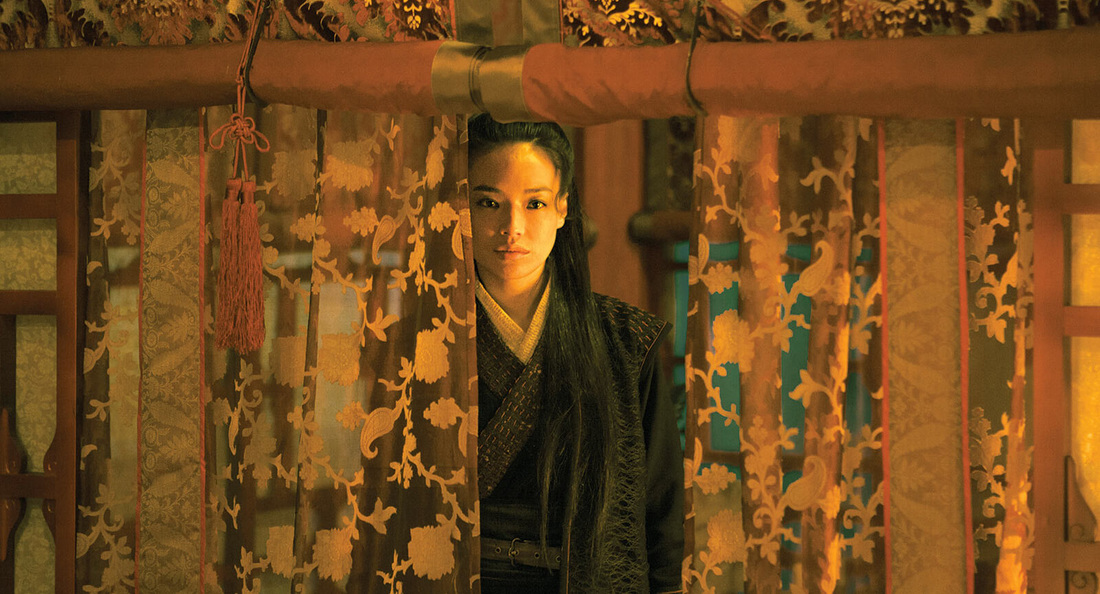The Assassin/Cì Kì Niè Yǐn Niáng [2015] is the latest film from Taiwanese director Hou-Hsiao Hsien. The film is loosely reimagined from a wuxia/martial arts story of the same name and it’s set in the Tang dynasty (or in other words: a long-ass time ago). Our eponymous assassin is a woman named Niè Yǐn Niáng, portrayed by Qi Shu. As an expert assassin, she is assigned to ensure that certain corrupt government officials sleep with the fishes. However, when she falters—when her clemency gets the better of her and she is unable to complete her assignments—in the hopes of curbing her compassion, she is assigned to assassinate her cousin: a man to whom she was once betrothed. But in reality, never mind any of this! The story may invite you in, but hopefully, you’ll end up staying for so much more.
Moving Pictures… Watching The Assassin is like witnessing a mesmerizing poem: its tone and mood are distinctive; its verse can occasionally be challenging; it can tap into a deep well of emotion; and, it can throw caution to the wind and become completely fantastical. The Assassin is nothing like the soap-opera-esque wuxia television dramas I grew up with and it’s wildly exciting. To start, the dialogue is sparse. People don’t do a whole lot of talking and talking, specifically telling, explaining, exposition is what I used to associate with the wuxia genre where the stories were always hammy and explained to death. The Assassin doesn’t do any of this. Instead, Hou demonstrates that film is behavior. And so, we are left to our own devices where we must carefully observe this world that he presents before us. And what a bewitching world it is! Wisps of steam from a cup of medicinal tea will rise steadily as steam curls upward from a bath. In another instance, a candle will emanate curled trails of smoke as another shot will show a current of fog drifting aloofly along a mountain. In other instances, the camera will hide behind swaying curtains, quietly observing our characters in unguarded conversation. Yet other shots will show us lush homes adorned with dainty gold chandeliers and ornate textiles or labyrinths of winding birch trees. Every image is a work of art and this alone is worth sitting tight for its 105-minute run time.
Comparing & Contrasting… Another noteworthy aspect of The Assassin lies in how Hou uses sound and silence, action and inaction.The Assassin isn’t a film with a sweeping score; but, what we do hear is effective. This film features a lot of nature sounds and nature is a huge part of this world. Long lingering takes of nature are not uncommon. Time will seem to stand still save for a solitary cloud set adrift amongst imperceptible swaying trees or the dusk fog ever so faintly swirling over a lake. This serenity of nature is diametrically offset by the political unrest and warring factions at the center of this story. This dynamic is occasionally enriched by non-diegetic sound. For instance, one prominent piece of non-diegetic sound is a solitary drum beat. It’s low and steady and functions as a minimal yet potent hint at the conflict just sizzling beneath the veneer of calm. The action is abrupt and unexpected—almost always preceded by extreme stillness—which makes it all the more jarring when it does happen. This juxtaposition of action and inaction goes hand-in-hand with sound and silence such that when Hou cuts directly into the fights, the sudden burst of noise is urgent and visceral. The blade’s hisses hang menacingly in the air conveying purpose and power to every strike. Through The Assassin, Hou demonstrates the impact of sound and silence, action and inaction, serenity and unrest—thus making the whole greater than the sum of its parts. (Incidentally, this film has a piece of bagpipe music that doesn’t make me want to put a pencil through my eyeball and that in itself is a win, right?)
Patience Grasshopper… The Assassin is a film that rewards the patient. This film is an outlier amongst its genre. As a martial arts film, it’s neither action-packed nor gratuitously violent. In fact, if there’s a single word for this film, it would be meditative. This manifests in the mise-en-scène and is emergent in our protagonist as well. Throughout much of the film, we’ll see Yǐn Niáng struggle with her assignment. This is again an exercise in contrast as we watch our assassin in various stages of action and inaction in relation to how her duties conflict with her morals. And what’s rewarding is bearing witness to how the events unfold: watching her silently stalk her prey; watching her swift face-offs with her opponents; and ultimately, watching how she exercises her agency and free will. This is a film that some will find sluggish while others will be spellbound. I’m of the latter camp and if what I’ve described thus far appeals to you, then you likely are too.
A beautifully imagined and well-executed study of conflict.

